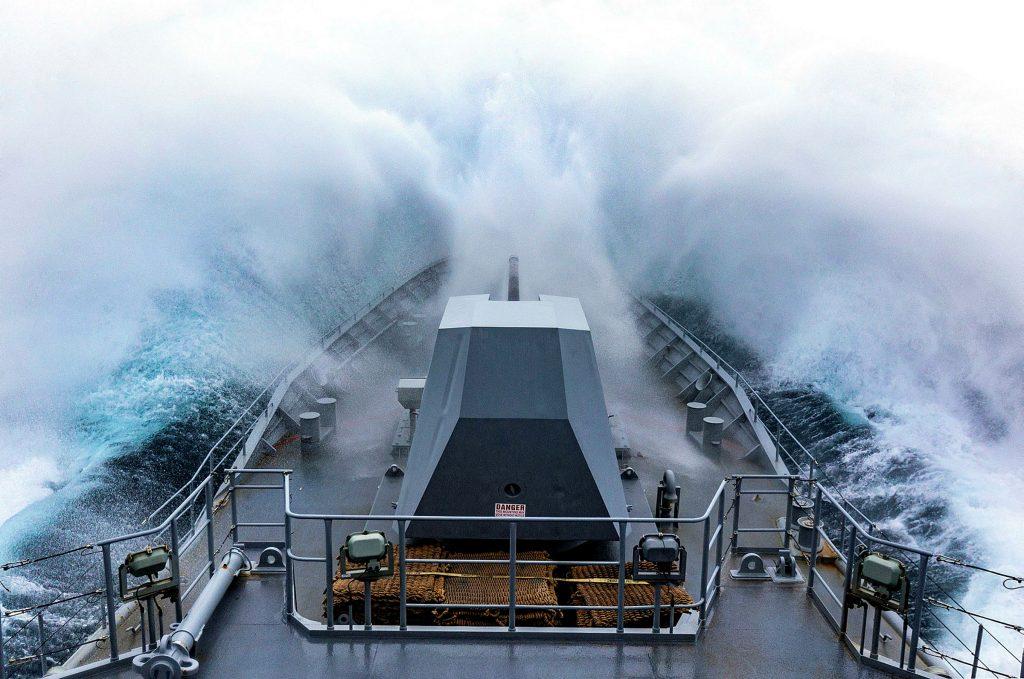Agenda for change: the big strategic issues
Posted By Gill Savage on February 3, 2022 @ 06:00

This week ASPI released Agenda for change 2022: shaping a different future for our nation [1] to promote public debate and understanding on issues of strategic importance to Australia. The key message in Agenda for change 2022 is that we need to embrace uncertainty, engage with complexity and break down the silos. Our economic prosperity, national resilience and security depend upon it.
In the lead-up to every federal election, ASPI looks at the big challenges facing Australia and what’s needed to address them. In Agenda for change 2022, the chapter by ASPI executive director Peter Jennings, titled ‘The big strategic issues in 2021 and beyond’, reflects on the ‘deep strategic change’ that has occurred in recent years and revisits his chapter from Agenda for change 2019: strategic choices for the next government [2].
Jennings highlights the contributing factors from Australia’s hottest and driest year on record in 2019, to the origins and arrival of Covid-19 and the ‘aggressive, hypernationalistic zero-sum-game strategy designed to promote the interests of Xi Jinping (now effectively president for life) and the Chinese Communist Party at the expense of the global strategic balance.’
The 2020 defence strategic update set the scene for the response to some of these challenges. However, 18 months on, the Defence Department is struggling to operationalise the update in a meaningful way.
This chapter looks at these and other changes in the strategic environment, noting that a turbulent three years influenced the announcement of AUKUS [3] in September 2021. While acknowledging that strategy statements ‘carry risk for governments’ given that they constrain policy flexibility, Jennings says that AUKUS needs a strategy to ‘extract maximum value’ from the agreement. He believes the prime minister ‘should make a statement to the Australian Parliament setting out the strategic case for AUKUS and identifying the key deliverables needed at the end of the 18-month pathway to deliver nuclear-propelled submarines’. Jennings is of the view that benefit will arise from ‘lengthy debate in parliament’ and allowing ‘as many members and senators as possible’ to express their views.
Jennings says that an independent review of defence capability is needed—Paul Dibb conducted the last one in 1986. An independent review would serve to ‘rebase the capability plan against current and emerging strategic developments’ as well as guide ‘capability trade-offs’ needed to strengthen Australian Defence Force capability within the next five years. Just as important, an independent review should identify the best options for ending projects and looking for better solutions—avoiding the perennial curse for defence projects of running grossly over budget and way beyond the original (and re-baselined) timeframe.
We also need to engage more in our region and Jennings suggests we need to lift our ‘strategic and diplomatic game’ in Southeast Asia. He says that the Department of Foreign Affairs and Trade needs an injection of funding to deepen Australia’s regional engagement, but more critical is that DFAT needs to ‘rediscover its policy mojo’. AUKUS and the Quadrilateral Security Dialogue are key enablers in developing shared approaches and for the world’s democracies to lift engagement in the region.
Increasing its profile and range of activities in Southeast Asia requires Australia to bring ‘larger numbers of students from the region to our universities’, address ‘access to Covid-19 vaccines in developing countries’ and strengthen ‘regional resilience against Chinese covert interference and grey-zone tactics designed to weaken ASEAN’.
More broadly, Jennings laments the decline of quality policymaking in the face of increasingly complex problems and fast-paced decision-making. In early 2021, I noted that evidence-based policymaking has morphed into evidence-informed policymaking, which has resulted in downplaying the significance of having a reliable evidence base [4].
Following the 2022 election, Jennings wants to see the government ‘recommit to orderly policymaking’, including by reinforcing cabinet decision-making processes, establishing a mechanism to fast-track defence capability decision-making, and making more use of parliament as the ‘appropriate place to announce and debate’ issues.
In his chapter, Jennings also reviews the strategic challenges highlighted in Agenda for change 2019 [2] and presents an assessment of how his key recommendations were addressed by government. In terms of government telling its policy story, Jennings’s rating was a credit (but can do better). But winning the public debate on submarines was a fail and embracing an ‘ambitious new technology agenda for defence’ only received a provisional pass.
The government’s biggest achievement from the previous agenda, says Jennings, was in facing the threat to regional and global stability represented by China’s increasing influence in the region. Jennings awarded a distinction on that one. Given the seismic shift in defence, regional, cyber and security policy that has occurred since 2019, such a rating seems appropriate.
Article printed from The Strategist: https://aspistrategist.ru
URL to article: /agenda-for-change-the-big-strategic-issues/
URLs in this post:
[1] Agenda for change 2022: shaping a different future for our nation: https://www.aspistrategist.ru/report/agenda-change-2022-shaping-different-future-our-nation
[2] Agenda for change 2019: strategic choices for the next government: https://www.aspistrategist.ru/report/agenda-change-2019
[3] AUKUS: https://www.pm.gov.au/media/australia-pursue-nuclear-powered-submarines-through-new-trilateral-enhanced-security
[4] significance of having a reliable evidence base: /disinformation-threatens-evidence-based-policymaking/
Click here to print.